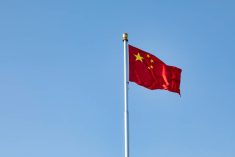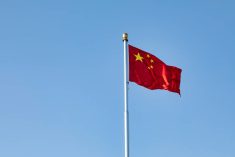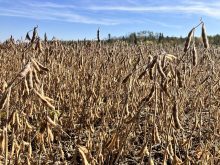Grain and oilseed markets had their ups and downs in 2024, with wars, labour unrest, trade disputes and politics often providing more direction than the traditional supply/demand fundamentals.
Russia/Ukraine – The conflict moved through its third year with no end in sight. Attacks on grain handling facilities, difficulties shipping through the Black Sea and shifting production estimates out of both countries were followed closely by traders.
Middle East – The Israeli war against Hamas in Gaza sparked wider disputes across the region. Resulting turmoil in energy markets was also felt in the grains and oilseeds, while trade through the Red Sea and Suez Canal was hampered.
Read Also

ICE Canada Weekly: U.S. biodiesel mandate will be a boon for canola
Canola is poised for more gains as the trade awaits the Trump administration’s decision on the latest biodiesel mandate, said Jamie Wilton, broker with RJ O’Brien in Winnipeg.
Panama Canal – Low water levels at the Panama Canal created additional headaches for global grain movement in 2024, although that congestion eventually started to clear up.
Labour disputes – Labour unrest was a feature of the Canadian grain trade in 2024, with strikes and/or lockouts at both coasts and at both major railways.
China – China began an anti-dumping investigation into Canadian canola in the fall. The country remains the largest export customer heading into the New Year, but the threat of another trade dispute between the two countries remains ever present.
Trump – Trump’s new administration is bound to generate headlines through 2025, but his proposed policies were already riling up the ag markets ahead of his inauguration. Most notably, import tariffs and resulting retaliation could dramatically alter international trade flows.















